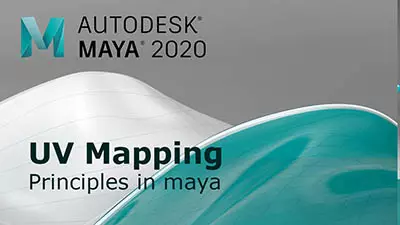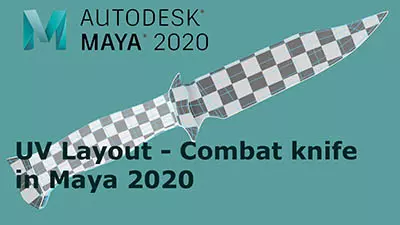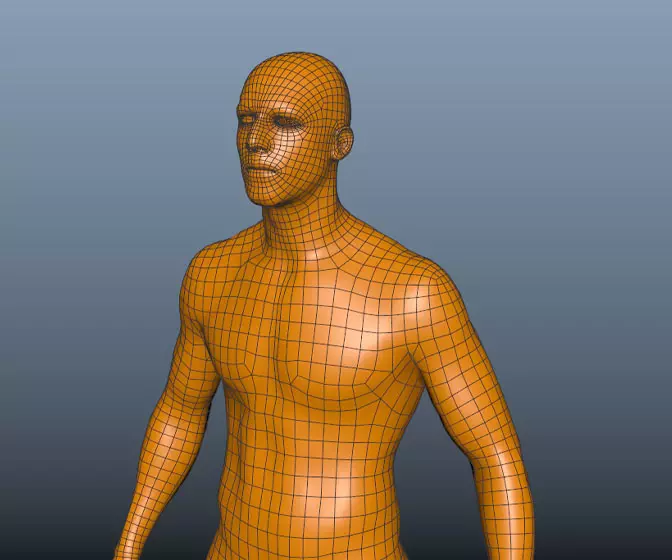Introduction to Maya - Modeling Fundamentals Vol 2
This course will look in the fundamentals of modeling in Maya with an emphasis on creating good topology. It's aimed at people that have some modeling experience in Maya but are having trouble with
complex objects.
#
1
23-04-2008
, 06:20 AM
nVidia Quadro FX 1500 vs FX 1700
Yes.... It's another vs post. I couldn't find what I was looking for in other comparison posts. So here it goes.
I drastically need a proper, but affordable, PCIE graphics card for my 3D projects. I use my workstation mainly for modeling and texturing game characters/objects in Maya 2008, Bodypaint and Photoshop. On the side I sometimes use Adobe premiere, After FX and AVID Xpress Pro.
Looking at the qualified hardware comparison charts for Maya 2008 and Maya 2008 extensions 2, I notice that the nVidia Quadro is best supported. So I think I’ll go for the Quadro FX.
Now here is where I don’t know what to choose from. I also don’t really know how all the features benefit. All features are explained to be the best quality and the fastest performance and what not. No matter what card I choose. (!?!) But seriously. "Shader Model", "Subpixel Precision", "Antialiasing", "Filtering", "Blending" and all those others. Will they improve only my workprogress (colors/effects in viewport, reaction time, render time, etc) or will my rendered image look better too?
Budged wise, I was looking for something around the 500-600 EURO range to start with. That would be the Mid-Range FX 1500 and FX 1700 from PNY. Although their prices are very close, looking at the PNY comparison charts, they still differ a lot. Here are the major differences:
FX 1500
256MB GDDR3 SDRAM
256bit interface
40 GBps
Shader model 3.0
DX 9.0c
Maya-02 85.31
FX 1700
512MB DDR2 SDRAM
128bit interface
12.8 GBps
Shader model 4.0
DX 10.0
Maya-02 110.80
What to look for?
More but slower memory? (DDR)
Less but faster memory? (GDDR)
Larger memory interface?
How about the Bandwith?
The FX 1700 is a newer model, but still, the memory bandwidth is only 32% of the "older" FX 1500!?
And than there is the not so much more expensive FX 1700 Professional Video Edition. Sounds interesting since I'm doing video editing on the side. But the specs look the same as the normal FX 1700. Or did I overlook something?
Can somebody shed some light on this and help me make a decision?
My current specs:
4GB RAM
Intel Core 2 Quad Q6600
ASUS P5B-VM
Portfolio: https://www.sharecg.com/pf/Dieko
#
2
23-04-2008
, 07:33 AM
Registered User
Join Date: Aug 2006
Join Date: Aug 2006
Location: /dev/null
Posts: 891
Subpixel precision... not sure what it means in this context, but it has to do with using parts of a pixel to make images more precise. Its sort of hard to explain, but if you have used Vista with a LCD monitor, you should notice fonts have a multicoloured look to them. Thats becuase of subpixel rendering, and it makes the fonts look sharper.
Aantialiasing depth (wrong term?) is very important in the display quality of shaded models. The higher the depth, the more precise the colour of a pixel is going to be when its displaying a line or edge, so the smoother and more precise the display is going to be. However, it won't help in the quality of a rendered image, unless you are using the hardware renderer.
As for filtering I suppose you mean bilinear filtering? If so, it means the ability to smooth a texture when it is applied on something that is either larger or smaller. Essentially, it makes the texture smoother and less pixelated.
As for which card is better, it is hard to say. I imagine that the FX 1700 is for 'large' jobs since its memory is twice as big, so it would make up for the lack of bandwidth by not needing to fetch data from the computer's physical memory so often.
The FX 1500 will be excellent for 'smaller' jobs I think cause it has way higher bandwidth. The only problem I see with it is that its DirectX and shader model versions are older, so software support, especially with software released in the next few years may be problematic. DirectX 9.0c is basically dead anyways, Microsoft is pushing v. 10 with Vista.
Of course this is my opinion, but I hoped I helped.

C. P. U. Its not a big processor... Its a series of pipes!
Last edited by The Architect; 23-04-2008 at 07:36 AM.
#
3
24-04-2008
, 10:34 AM
The features are briefly described in the card specs too. I put a couple of links to them in my previous post. But what u're saying is that I should be getting better quality renderings with a Quadro hardware rendering than with Maya software rendering?
I never tried hardware rendering before. But if I get the same result with software rendering, I'm going to forget this quite costly Quadro idea all together.
Portfolio: https://www.sharecg.com/pf/Dieko
#
4
25-04-2008
, 02:18 AM
Registered User
Join Date: Aug 2006
Join Date: Aug 2006
Location: /dev/null
Posts: 891
Anyways, what I meant is that when you are in shaded view, or high quality shaded mode, a Quadro should look better than a stock GeForce, with the added bonus of being certified by Autodesk.
With hardware rendering, I think a Quadro should have better results than a GeForce, but when compared to software rendering, it would probaly be worse since hardware rendering doesn't have as much extra features.
Now that I have the pdf from the links on my screen, the FX 1700 does look like the better choice. If you look at the bottom, the FX 1700 beats the FX 1500 in every single benchmark, plus its got a newer GPU than the FX 1500 and a faster PCIe interface (8 GB/s vs 4 GBs). These features make it faster than the FX 1500 despite having slower memory.
C. P. U. Its not a big processor... Its a series of pipes!
#
5
08-05-2008
, 07:26 PM
Anyways. Thanks for the reply. I noticed the links aren't very obvious. The simplymaya.com webstyle doesn't show links very well.
Too bad the software rendering will result in better quality renderings than hardware on a quadro card of my budget. I was hoping the extra cash I'll put into buying such card would especially improve my renderings.
I could have considered buying a similar, but cheaper, ATI FireGL card if they didn't show so much trouble in qualified hardware chart
https://download.autodesk.com/us/maya...sion2_win.html
I've been using low-end and onboard GeForce graphics cards/chips most of my life. But they allways give me a hard time whenever I install a new version of maya. The comon GUI update problems with GeForce is only solved by upgrading, or sometimes even downdgrading, GeForce drivers. But because my recently bought computer has a crap Intel graphics chip and really gives me problems I can't work with, I've decided to try a workstation card. An FX 1700 it will be.
Thanks for your help and technical insight.
Portfolio: https://www.sharecg.com/pf/Dieko
#
6
09-05-2008
, 10:30 AM
Registered User
Join Date: Aug 2006
Join Date: Aug 2006
Location: /dev/null
Posts: 891

Well, I hope that your new card will make your work easier.

C. P. U. Its not a big processor... Its a series of pipes!
Posting Rules Forum Rules
Similar Threads
quadro fx 3450 and maya 2011 64bit advice please
by av24 in forum Lighting & Rendering replies 1 on 22-08-2011
quadro FX 3450 card issues?
by Rhetoric Camel in forum Maya Basics & Newbie Lounge replies 23 on 03-02-2010
Alienware now equipped with Quadro FX 4500 accelerators.
by Tubby in forum Maya Basics & Newbie Lounge replies 0 on 01-08-2005
Fx 5700 Ultra to Quadro FX 1100
by Phopojijo in forum Maya Basics & Newbie Lounge replies 0 on 16-06-2005
PNY QUADRO FX 500
by feynman in forum Maya Technical Issues replies 2 on 02-01-2004
Topics
Free Courses
Full Courses
VFX News
How computer animation was used 30 years ago to make a Roger Rabbit short
On 2022-07-18 14:30:13
Sneak peek at Houdini 19.5
On 2022-07-18 14:17:59
VFX Breakdown The Man Who Fell To Earth
On 2022-07-15 13:14:36
Resident Evil - Teaser Trailer
On 2022-05-13 13:52:25
New cloud modeling nodes for Bifrost
On 2022-05-02 20:24:13
MPC Showreel 2022
On 2022-04-13 16:02:13








